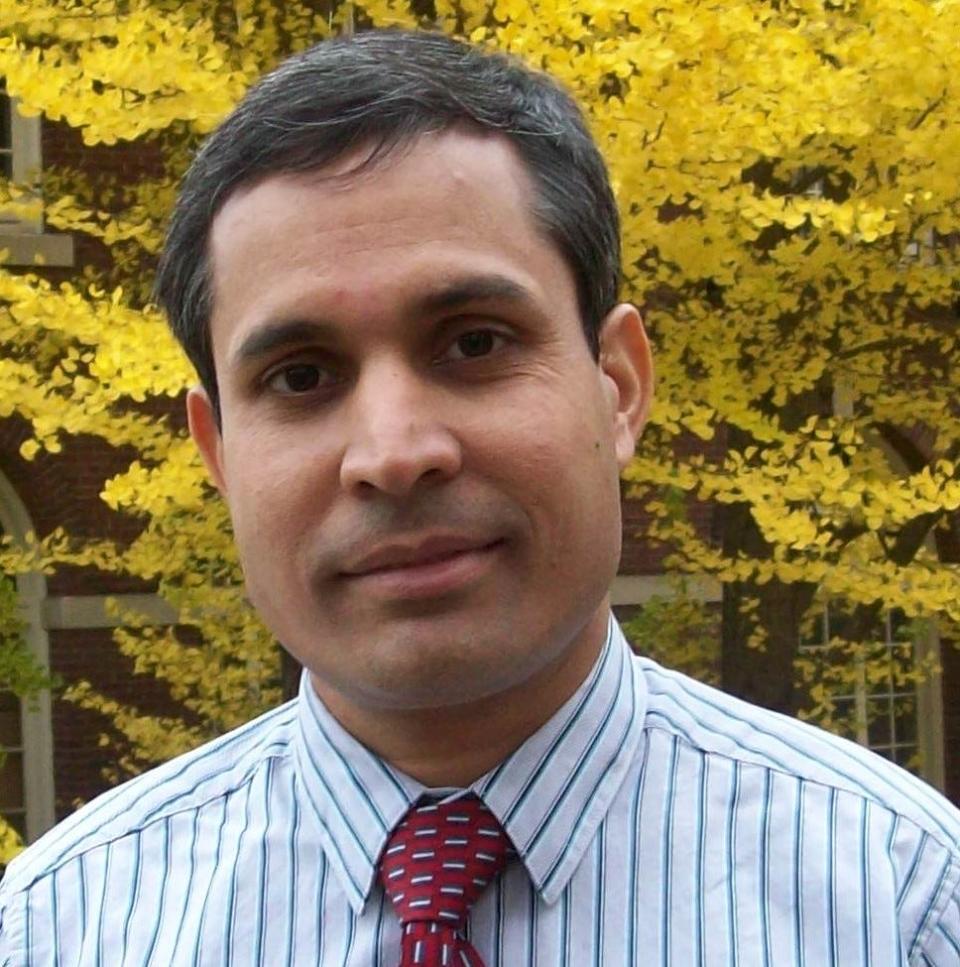Debidatta Mahapatra: Understanding the moral and ethical foundation of the U.S. Constitution
- Oops!Something went wrong.Please try again later.
- Oops!Something went wrong.Please try again later.

While discussing Constitution Day recently with my students, one thing I encountered consistently was their genuine curiosity to know more about the moral and ethical foundation of the U.S. Constitution. Events of great historical significance, such as the founding of the United States, the first democratic country in the modern world, could not have been possible without that foundation.
The democratic experiment here not only challenged many archaic notions (such as the divine right of rulers), but also heralded an era in which human aspirations found democratic channels for fulfillment.
Among the ancient philosophers, Plato was a major influence on the founding fathers. In the Federalist Papers, installment No. 49 refers to Plato using the words, “enlightened reason.” These words might appear striking in the context of the rising political polarization of our times, but the founding fathers believed that any ruler — whether a king or a president in modern times — must embody the concept of enlightened reason.
For Plato, the ruler must also be a philosopher and undergo rigorous training to rule. George Washington embodied this spirit when he said, in his farewell speech, “It is substantially true that virtue or morality is a necessary spring of popular government.”
Fast forward to more modern times, the Age of Enlightenment in the late 17th century was another major influence on the founding fathers. It emphasized rational thinking and valued free will of the individual. A major thinker of this era — Immanuel Kant — argued that every individual — irrespective of their status (to which we can add race, color, ethnicity and other markers of identity) has moral worth, which must not be compromised in a peaceful society.
The social contract theory, as developed by Thomas Hobbes, John Locke and Jean Jacques Rousseau, also reflected Enlightenment thinking. Though they differed in their arguments, they broadly agreed that the state is a human artifice. It is a creation of free and rational individuals through a social contract.
USA Today panel: Political tensions are growing - what is the state of American democracy?
Mark Woods: Fifty years ago, Jacksonville lawyer fought city — and won landmark Supreme Court case
Letters: Don’t remove sex education, reproductive health in Duval County Public Schools
Among the three thinkers, Locke influenced a majority of the founding fathers. He argued that every individual enjoys natural rights, which existed prior to the creation of the state. Those rights — right to life, liberty and property — are intrinsic to human existence, and no state can take away those rights. The words in the Declaration of Independence – “Life, Liberty and pursuit of Happiness” — were a clear imprint of this Lockean philosophy, championing limited government and rule of law.
Rousseau argued that it is the will of the people, or what he called “general will,” is the supreme governing principle in a democratic state. There are broadly two types of will — the general will, motivated by concern for the welfare of the community, and the particular will, motivated by the selfish interests of the individual.
He famously made the case that the voice of the people is the voice of God, and government derives its power from the people. The words of Abraham Lincoln in his Gettysburg Address (“government of the people, by the people, for the people”) echoed Rousseau’s general will.
Thomas Paine emphasized common sense and made a persuasive case for the creation of the American republic. Montesquieu’s theory of separation of powers — that each branch of government must have limited powers with checks and balances — also influenced the founding fathers. It was reflected in the creation of the three branches of government: legislative, executive and judicial. The rationale behind the separation of powers was that power tends to corrupt, and absolute power corrupts absolutely.
Despite all their imperfections, such as slave ownership, the grand vision of the founding fathers sailed the country smoothly through various phases of turbulence. The Bill of Rights and later amendments charted a course toward a more inclusive and pluralistic future.
It is often helpful to climb a mountain, even in the imagination, to see the larger picture from above, or to travel in a time machine to the era of the founding fathers. Doing so can help us realize and fathom the battles they had to wage in order to build the first democratic country in the modern world.
It also might just help cool the high political temperatures we are witnessing today.

Debidatta A. Mahapatra, Ph.D., is a professor of political science at Florida State College at Jacksonville.
This guest column is the opinion of the author and does not necessarily represent the views of the Times-Union. We welcome a diversity of opinions.
This article originally appeared on Florida Times-Union: Understanding the moral and ethical foundation of the U.S. Constitution

